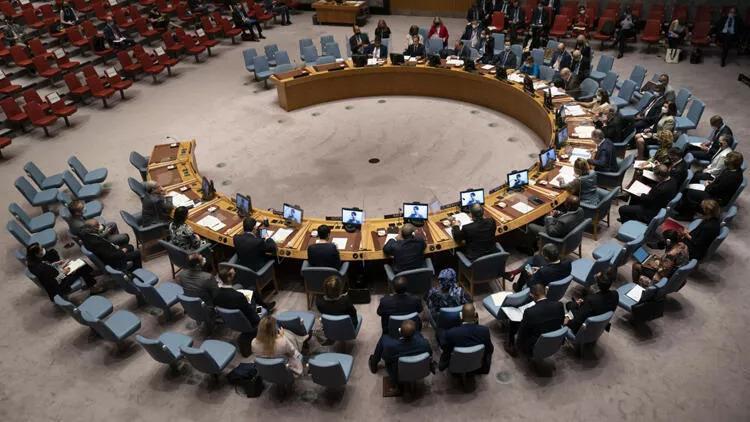
Türkiye welcomed the extension of the U.N. cross-border aid mechanism to Syria for another six months, the Foreign Ministry said on Jan. 9.
“We welcome the extension of the United Nations cross-border mechanism for humanitarian assistance to northwest Syria for 6 months by the U.N. Security Council on Jan. 9, 2023. The U.N. mechanism plays a vital role in the delivery of urgent humanitarian assistance to 4.1 million people in need in this region,” the ministry said.
The scale of the humanitarian crisis in northwest Syria and regional stability necessitates the longer-term maintenance of the U.N. mechanism, the ministry said, noting that Türkiye, which has maintained its cooperation with the international community to this end, will continue to do so in the future.
The 15-member council voted unanimously to extend the resolution, which provides life-saving assistance to millions of people living in northern Syria, until July 10.
The aid delivery mechanism across Türkiye’s border into rebel-held Syria at the Bab al-Hawa crossing is the only way U.N. assistance can reach civilians without navigating areas controlled by Syrian government forces.
The mechanism - in place since 2014 and was due to expire on Jan. 10 - was last renewed in July 2022, also for only six months, at the insistence of Syria’s ally Russia.
Everything from nappies and blankets to chickpeas are delivered in aid via the Bab al-Hawa crossing, which makes up for more than 80 percent of the needs of people living in rebel-controlled areas.
Moscow has, for years, pressured international organizations to pass exclusively through regions under the control of Damascus to distribute aid throughout the country -- going as far as vetoing cross-border extensions that exceeded six months.
The United States, France and others said they wanted the mechanism to be extended for one year. “The debate we need to have is how to strengthen the mechanism to reach more people with more assistance,” U.S. Ambassador Linda Thomas-Greenfield said, describing the resolution as “the bare minimum.”
Moscow’s U.N. envoy, Vassily Nebenzia, said Russia’s support of the six-month extension “should not be viewed as a change in our principled position” on the mechanism, calling for “respect for Syria’s territorial integrity.”
In 2014, international aid could flow to Syria through four border crossings, but after years of pressure from China and Russia, only the Bab al-Hawa route has remained operational.
Defense minister warns Syrian opposition against “provocations”
Defense Minister Hulusi Akar warned Syrian opposition groups against any “provocations” amid a new process between Ankara and Damascus to normalize ties.
“We have not, and will not, take any action against our brothers and sisters we stand by in Syria that will put them in trouble. Therefore, they should act with this awareness and not be provoked,” Akar told reporters on Jan. 9.
The talks between Türkiye and the Syrian regime are “in good faith for the relations between the two countries and the peace in the region,” he stated.
“We hope that [the talks] develop through mutual negotiations and turn into a situation that will contribute to peace and stability for the region,” Akar said.
Ankara “works to fight terrorism and find a solution to the refugee problem,” the minister stressed.
“We hope that there will be peace, tranquility and stability as a result of these [talks] and that our Syrian brothers and sisters we host in our country will return to their lands voluntarily, safely and respectfully, as stated in the U.N. texts,” Akar said.